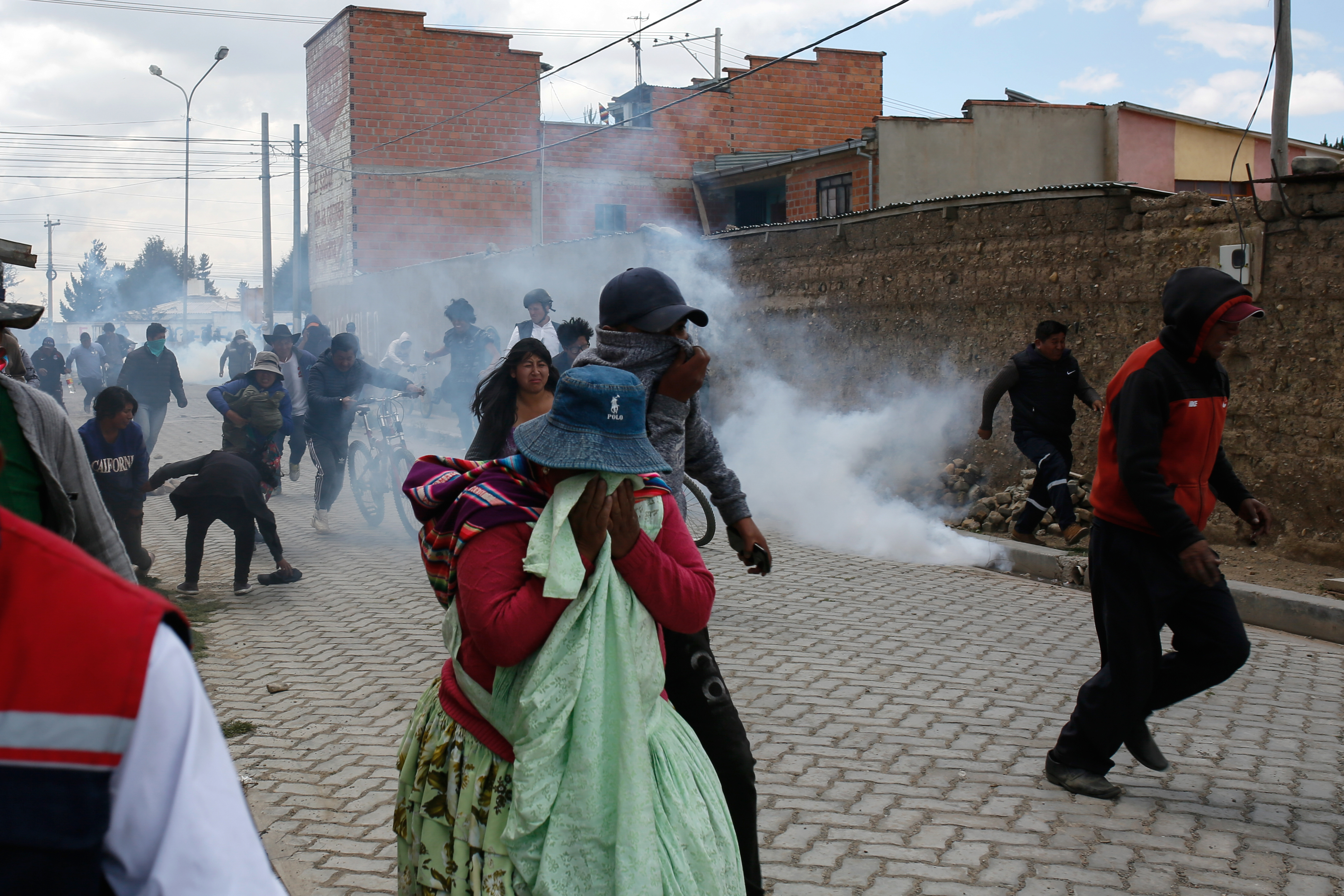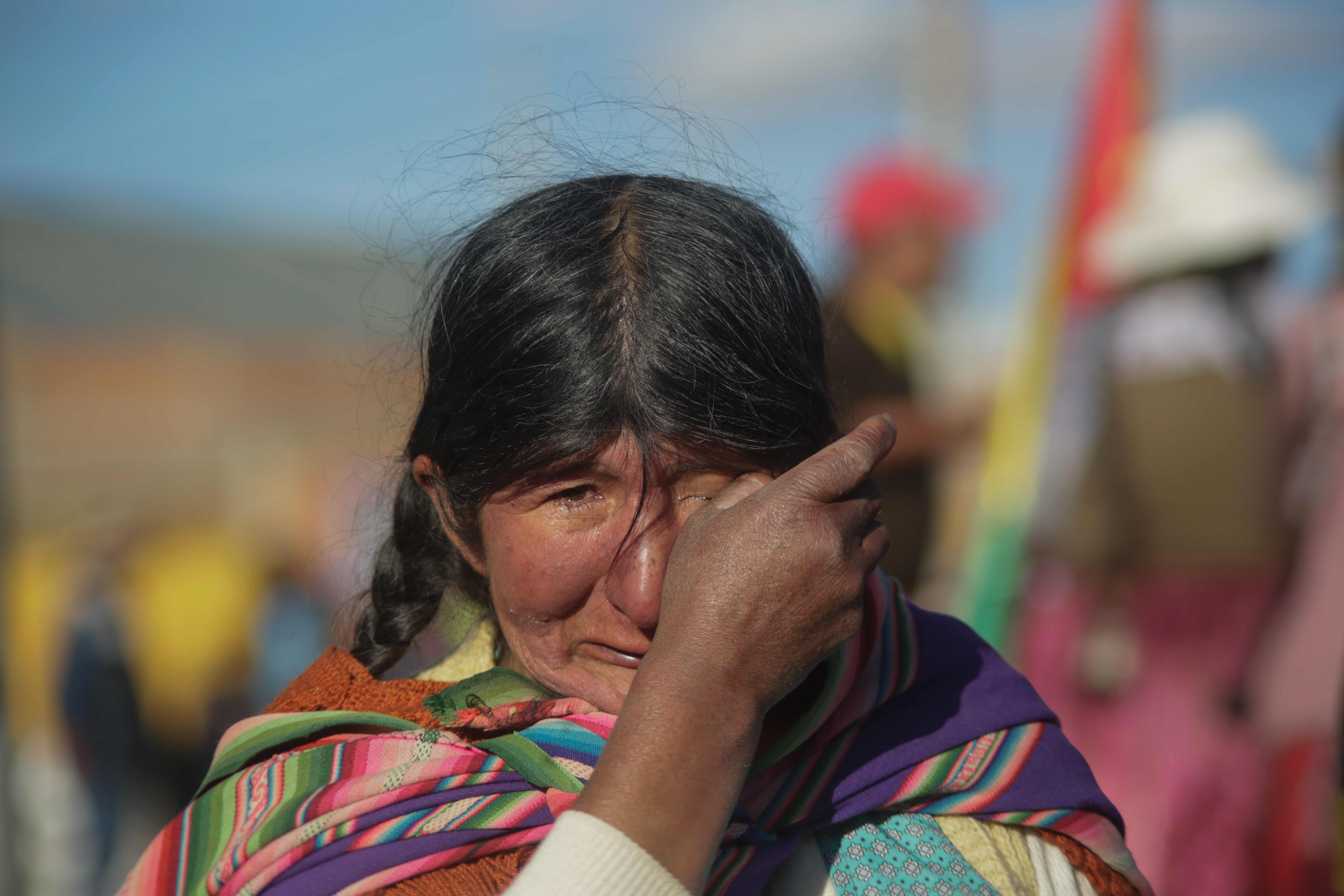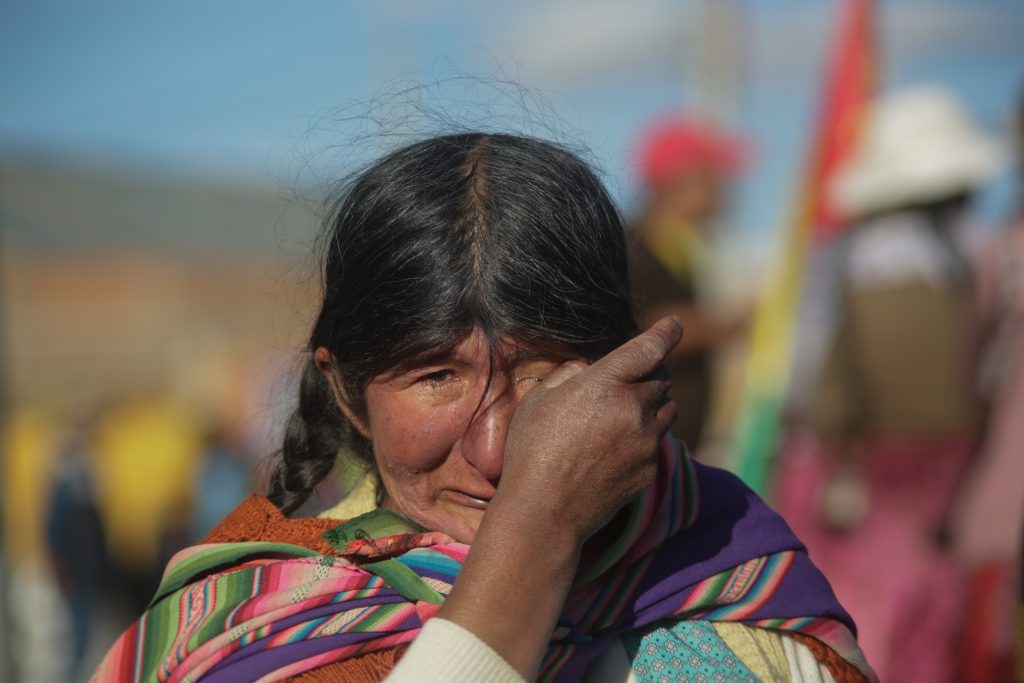As massive protests carry on in Bolivia, the death toll has escalated to 26, CNN reports.
On Tuesday, three people were killed while Bolivian security services attempted to clear a path for gas tanks to leave the Senkata gas plant near La Paz, the capital. For weeks, demonstrators have taken over roads, causing blockades that have fueled food and fuel shortages in various cities.
In addition to the three deaths this week, the Inter-American Commission on Human Rights said 23 others have died in the midst of the month-long political unrest.
Protesters hit the streets following the controversial presidential election on October 20. Former President Evo Morales was accused of electoral fraud, a claim he has denied. Nonetheless, the politician, the first Indigenous president of the South American country, resigned and took political asylum in Mexico. He and his supporters have asserted that he is the victim of a coup.
As opposition Senator Jeanine Añez declared herself interim president, she has faced fierce pushback from lawmakers, two-thirds of them are pro-Morales, and demonstrators, many of them Indigenous Bolivians who believe Morales was violently and illegally taken out of power. They are also critical of the leader’s attempt to make the country a Catholic nation again, the disrespect the opposition has shown to the Indigenous Wiphala flag and the lack of Indigenous representation in Añez’s new unelected government.

With the increasing death toll, Human Rights Watch has accused the Añez government of giving the military sweeping powers that “appear to prioritize brutally cracking down on opponents and critics and give the armed forces a blank check to commit abuses instead of working to restore the rule of law in the country.”
“The priority should be to ensure that the fundamental rights of Bolivians, including to peaceful protest and other peaceful assembly, are upheld,” José Miguel Vivanco, Americas director at Human Rights Watch, said in a statement.
Last Friday, nine pro-Morales coca growers were killed. With the increase in violence, which Añez has blamed on the former president, protesters are calling on the interim leader to step down.
Over the weekend, Añez announced that she would soon hold a new “transparent” election to re-establish the country’s “democratic credibility.”
In turn, Morales has said he would not run in the new election if he is allowed to complete his current term.




